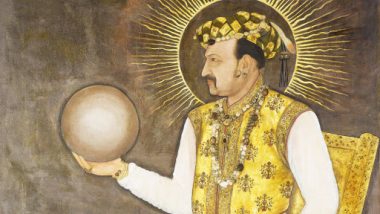Chandigarh, March 27: Panjab University is globally known for the new initiatives that it takes to enrich the experience of its students. In the latest development, the varsity is digitising 490 centuries old manuscripts of Persian dictionary ‘Farhang-e-Jahangiri’ – dating back to the 17th century – in Urdu, Persian and Arabic languages. These old troves are kept in the AC Joshi Library of the varsity.
According to the report, published in the Indian Express, PU has a rich collection of old treatises, but with the decline in the number of Persian and Arabic readers, many are unaware of this wealth. New National Education Policy Draft to Wait Till Lok Sabha Elections 2019 Results, Says Prakash Javadekar.
Important manuscripts that are enshrined in the library include – Jung Nama-e-Kabul written by Syed Fida Hussain in 1838, Farhang-e-Jahangiri written by Mir Jamal Al Din Husayn at the beginning of the 17th century, and a Persian Urdu translation of Waris Shah’s Heer Ranjha dating back to 1790.
The reports add that PU administration is in the process of digitising these works and the work is going on since 2018. The varsity administration is expecting to complete the work by next year. Even Department of Urdu and Persian coordinator Dr Ali Abbas expressed shock after listening that no one enquired had ever enquired about these tomes.
Abbas informed that 1,000-page Farhang-e-Jahangeri was written during the rule of Mughal Emperor Jahangir and ‘Farhang’ means dictionary in Persian. The dictionary contains the names and details of various cities and places in the region besides words from different languages. He adds, as the daily quotes, “The writer has used many other dictionaries of the time to prepare this valuable work, and the author named it in the honour of Mughal emperor Jahangir.”
The Persian coordinator at PU also briefed about another important piece in Urdu ‘Jung Nama-e-Kabul’, written by Syed Fida Hussain in 1838 which presents the history of Afghanistan. However, the Persian translation of Heer Ranjha written by Waris Shah in 1790 uses a plethora of new words in vogue during those days.
(The above story first appeared on LatestLY on Mar 27, 2019 04:01 PM IST. For more news and updates on politics, world, sports, entertainment and lifestyle, log on to our website latestly.com).













 Quickly
Quickly


